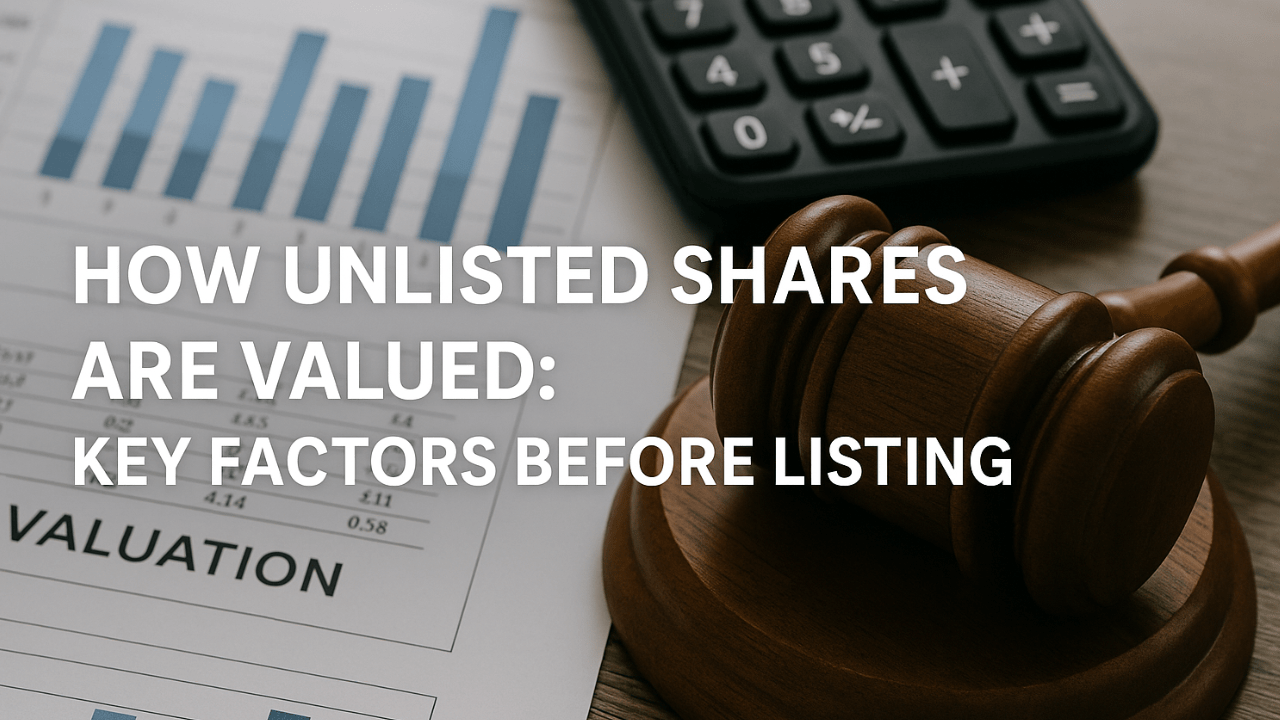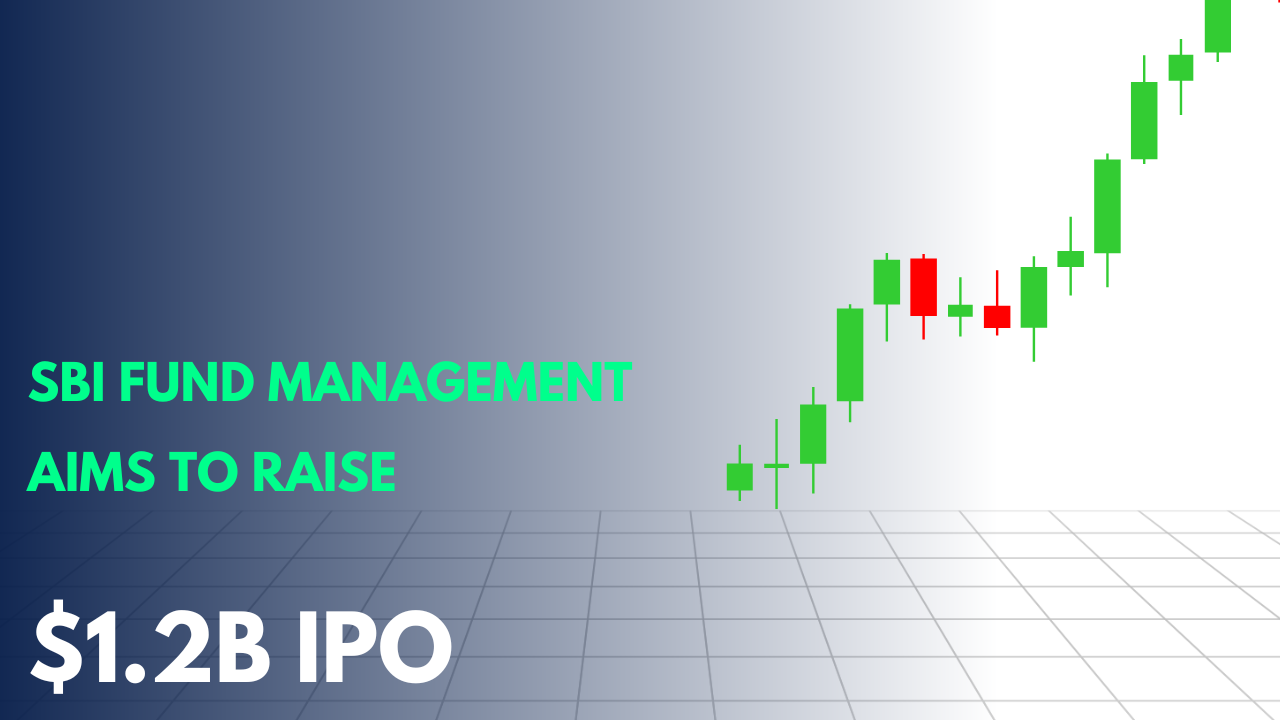For early stage or pre-IPO Company potential, proper unlisted share valuation is important. Private shares are not publicly traded, meaning one needs to study and appraise them in order to value their worth. This function is even more analytical and holistic than public equity. Valuation of Unlisted Shares helps in evaluating business’ operational status, future vision, IPO potential and performance in general, stakeholders indirectly.
It also helps establish a rational basis for decision-making, which aids in managing expectations and removing the opacity that typically accompanies pre-IPO companies. This article discusses the key elements and the relevant facets of the determination of value, establishes their importance in the value determination in the determination process prior to listing.
How to Evaluate Unlisted Shares?
Unlisted share valuation is fundamental in establishing the reasonable value of a business prior to going public. Given that these companies do not trade in public markets, a variety of internal factors, comparisons to peers, prospect analyses, and external evaluations are utilized to arrive at a company’s value.
This article will examine the core components surrounding the unlisted share valuation, the methodology used by professionals to obtain a value, and the significance of this procedure to facilitate an efficient public market entry.
Why Unlisted Share Valuation is Necessary Prior to Listing
Every company coming to the market for the first time must understand how the company is valued. An unlisted share valuation will provide information necessary to assess a company’s performance, stability, and continuing direction.
This information will provide a basis for the company’s future growth and decisions related to going public.
A company will be able to have:
- More accurate price discovery.
- Increased transparency for prospective investors.
- More efficient stakeholder engagement.
- More strategic decision-making for the investors.
- Increased confidence for a successful transition to going public.
Fulfilling its growth potential and offering the opportunity to realize its strategic vision will enable a company to successfully go public.
Factors That Influence Unlisted Share Valuation
Important factors that influence unlisted share valuation.
1. Financial History and Sustainability
The financial position of the unlisted company is a crucial element of its valuation. Unless a company is going to be sustaining a performance visibility gap, these metrics will be passed on to the analysts for their evaluation.
The unlisted company’s performance will be evidenced by revenues and efficient utilization of operational cash flows. The financial metrics will reflect discipline in the cost structures.
A company that is going to sustain performance will build stronger trust and valuation that supports the stability of the company.
2. Business Model Strength And Scalability
A company’s operational model is an important aspect that influences unlisted share valuation. Factors that analysts look for are:
- Definite offer articulation
- Clear competitive advantage
- Market penetration capability
- Customer acquisition and retention
Businesses with sustainable growth have increased long-term potential and therefore have a greater valuation range.
3. Market Position and Competitive Landscape
An entity’s position compared to its peers is also a huge impact multiplier on valuation. It is based on the components of:
- Industry dynamics
- Peer benchmarking
- Business differentiator
- Entry barriers
A company that is strategically positioned in a growing segment also discharges an enhanced valuation as a consequence of increased market trust.
4. Management Quality and Vision
The strength of leadership is also a major driver of unlisted share valuation.
- Reviewers are interested in:
- The managerial team’s capacity and experience
- The long-term vision and strategy
- The strategy execution in the past
- Flexibility to market shifts
A company with a competent and visionary management team is signalled to have the derived trust and a company’s readiness for the upcoming milestones, including listing.
5. Asset Base and Resource Strength
A company’s worth is formed by its resource investments. Resources can include:
- Infrastructure
- IP
- IT
- Technological assets
- Digital brands
Refined resource pools strengthen the resilience and uplift the long-term valuation outlook.
6. Growth Prospects and Future Outlook
Undervalued shares can be lifted by growth potential. Analysts consider the company’s ability to grow over the years by assessing:
- Growth framework
- Product innovation
- Market development
- Alliances
An assessment of the company’s likely performance post-listing is the core of the valuation task.
7. Industry Conditions and Macro Trends
The company’s valuation is greatly impacted by external market determinants such as:
- Sector growth
- Customer shifts
- Innovation
- Business cycles
An uplifted valuation of the company due to better industry conditions reflects innovative long-term expectations.
8. Multiples and Peer Benchmarking
To derive an equitable valuation, comparisons with both listed and unlisted peers are effective. Peer benchmarking includes:
- Business model
- Operational metrics
- Market position
This valuation reflects industry standards and market expectations.
9. Reports On Autonomous Valuation
Certain companies hire professionals to produce independent reports.
- These independent reports:
- Adhere to standardised valuation processes.
- Offer valuable insights without partiality.
- Increased stakeholder confidence
Such reports help provide credibility and create a reliable benchmark for organisations to go public.
Unlisted Company Valuation Techniques
Before shares of a company start trading on a public exchange, the company will receive a number of valuation estimates, and there are various methodologies that provide a fair and reasonable estimate of the company’s value.
These methodologies examine the company and provide an estimate of value based on several of the company’s attributes, including performance, assets, and future value. Unlisted shares valuation is calculated as follows:
1. Discounted Cash Flow (DCF) Method
The DCF technique determines the value of a company based on future cash flows and the value of those cash flows at the present date. The DCF technique is one of the most reliable and reasonable valuation methodologies as it:
- Considers long-term financial viability
- Reflects true operational performance of the company
- Incorporates growth and sustainability
DCF is a more accurate valuation technique for a company that has predictable cash flows and a clear operating and revenue model for the future. DCF provides a forward-looking estimate, which is one of the most relevant for unlisted share valuations.
2. Comparable Company Analysis (CCA)
The Comparable Company Analysis values a company based on the multiples of other similar companies. During analysis, the following are compared:
- Operating metrics
- Business models
- Growth patterns
- Market share
Peer companies, whether public or private, are used to ensure the valuation is realistic for current market conditions. This provides the unlisted share valuation in line with market values.
Asset Based Valuation
This approach determines the value of the company by calculating the worth of the company’s assets. Consider the following,
- Tangible assets
- Intangible assets
- Net assets
This technique is especially useful in assessing businesses where the presence of considerable physical and intellectual capital is notable. It aids in comprehending the fundamental resource strength and enhances the value estimation of un-traded equity.
4. Earning Based Valuation
This approach determines value based on the company’s ability to earn. It considers,
- Earning capacity
- Ability to operate efficiently
- Stability of income streams
A successful company characterized by high and stable earnings is likely to be positioned at the top of the range of the valuation spectrum.
This technique aids in constructing a value estimation of unlisted shares that is realistic and driven by the company’s performance.
A Comparison of Unlisted Share Valuation and Listed Share Valuation
Unlisted firm valuation does not follow the same approach as that of a listed firm. Listed firms undergo real-time valuation based on market fluctuations, buyer sentiment, and purchase activity.
Unlisted share valuation, however, undergoes a methodical, analytical approach due to the absence of market fluctuations.
The most prominent differences include:
Real-time price valuation
In case of listed shares the prices are determined as per market trend driven by demand and supply. For unlisted shares investors need to do research and they can get the insight of prevailing price trends through websites that deal in unlisted shares.
Higher reliance on internal data
Unlisted valuation depends on questionable market-based financial performance, management rationality, and internal reports.
Strategically longer-term planning
Analysts consider the absence of short-term trading signals in evaluating future plans, system scalability, and overall organizational growth.
Greater trust and reliability of the valuation.
Absolute confidentiality of unlisted shares requires comprehensive analysis and rational planning to gain trust.
The absence of market-driven prices entails unlisted share valuation to be more comprehensive, analytical, and future-oriented, reflecting a fair value that balances current performance and future potential.
How Valuation Helps Before Listing
Having a thorough unlisted share valuation is essential for any company looking to go public. Since unlisted businesses have no market pricing, a valuation helps add clarity and confidence for each stage.
This type of valuation builds:
- Confidence among stakeholders is achieved by offering a picture of the business and the direction it will take in the long term.
- Clarity during the strategy and discussion stage, enabling easier communication with partners and advisors.
- Strength in price discovery for future mappings to ensure that expectations remain level with market pricing.
- Confidence in the price discovery for the future in valuations, so that expectations are set with the market.
The ability to enhance visibility by helping companies improve in areas of focus. Defining the valuation of the unlisted company helps ensure that improving the valuation will make it easier to get acquired. Controlling the unlisted share will assure a level of complexity.
Conclusion
Anyone looking for a company’s future options before going public needs to understand unlisted share valuations. These unlisted companies don’t have any market-based pricing because they have yet to go public.
This means they value a company considering things like structured analyses, long-term forecasting, management quality, asset quality, and future assumptions. This makes unlisted share valuation a more complicated and methodical approach than the valuation of listed companies. Knowing unlisted share valuations explains more than a company’s current standing. The future potential and industry readiness are explained, the ability to compete.
Companies that have the correct data and can provide clear and unambiguous data can better prepare for and manage future milestones, including growth and going public. Investors who want to know more about unlisted shares and unlisted shares prices can visit trusted online sources like Delisted Stocks.
FAQs
Q1-What is unlisted share valuation, and why is it important?
Unlisted share valuation estimates unlisted companies and their worth. Unlisted share valuation allows the company to estimate its position and standing as a company today, as well as the company’s future outlook and growth potential. Stakeholders within the company will be able to validate their decisions within the company. Unlisted share valuation helps companies evaluate their current position to make decisions and potential future positions to determine whether to become a publicly listed company or not.
Q2-How is unlisted share valuation different from the listed share valuation?
Valuation of listed companies relies upon real-time market analytics and pricing. Unlisted share valuation does not have a fluctuating market to analyze and derive valuation from.
While the listed companies are trading publicly, unlisted companies are not. Unlisted companies do not have market activity. This leaves unlisted companies to require structured Market analytics, which makes the valuation process more complex and reliant upon a transparent valuation process.
Q3-What factors influence the valuation of unlisted shares?
A number of factors affect the valuation of unlisted shares. They include financials, profitability, the business model, market position, trends in the industry, and the quality of the company’s assets and potential expansion.
Evaluating a company’s financials, profitability, and performance in comparison with competitors determines the company’s position in the market and its overall potential in the market. These factors contribute to arriving at a reasonable estimate of the company’s value in the market, especially before going public.
Q4-Why does the quality of management matter in unlisted share valuation?
Quality of management plays an important role in influencing the share value because the leadership team is regarded as the most important team in deciding the company’s future direction. Analysts evaluate management teams on their experience, ability to execute plans, and adaptability.
A company with a great leadership team is viewed as a company that is able to survive changes, execute plans. Such a scenario is viewed positively in support of the share value and overall management value of the company.
Q5-How do analysts figure out the worth of unlisted shares with no market prices?
Analysts use a lot of different methods to assess unlisted share valuation like DCF, comparable valuation, asset, and earnings valuation. They look through the internal data, monitor the market, and value the company, the company’s internal data and how the company protects its strengths and plans for growth.
Q6-What kind of market factors impact unlisted share valuations?
To do a valuation, it is necessary to consider market conditions to assess the potential demand and to determine what the competitors will do, and how the market tends to behave. A market analyst would check the external market to find sector movements, technological shifts, changes in customer preferences, and overall shifts in the business cycle.
If the market in the industry is expanding or showing positive medium to long-term growth, the valuation will be better off for it. Good market conditions help companies to be in better positions and help companies in the needs of making offers to the public.
Q7-How does comparison with peers help determine the value of unlisted shares?
Comparison with peers helps make sure that value stays within the range of what the industry expects. Analysts examine other companies and their respective operational models, market relevance, and market competitors.
By comparing with peers, analysts set a reasonable value range that is reflective of the market situation. This method helps in ensuring that the value is reasonable, accurate, and does not deviate from the industry standard.
Q8-Why is the unlisted share valuation important before the company goes public?
Valuation drives the company’s ability to know its standing and communicate that with its stakeholders. It helps in price discovery, enhances decision-making, and provides a clear pathway for planning.
Having a structured valuation helps the company to market itself, sets the expectations, and makes the process of going public smoother.
Disclaimer:
This article is for informational purposes only and should not be considered investment advice. Prices and data of unlisted shares are based on publicly available sources and may vary. Investors are advised to conduct independent research or consult financial professionals before making investment decisions.









